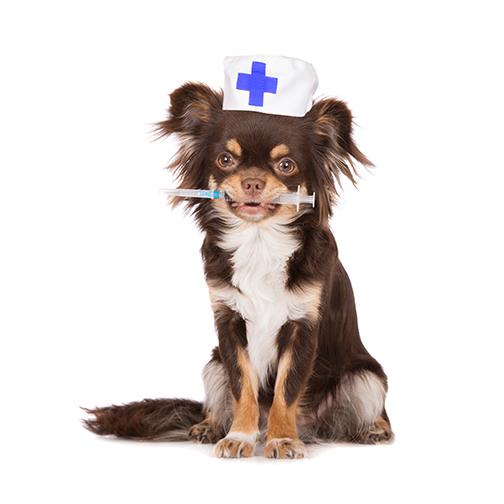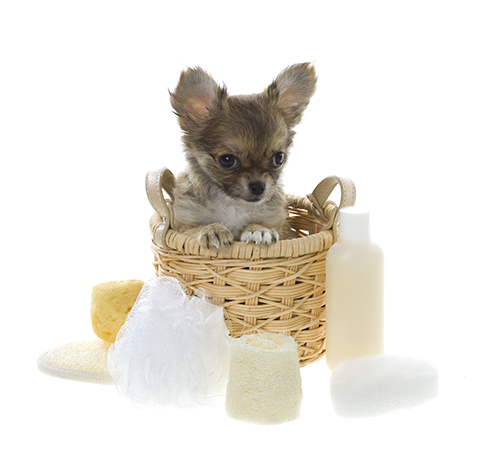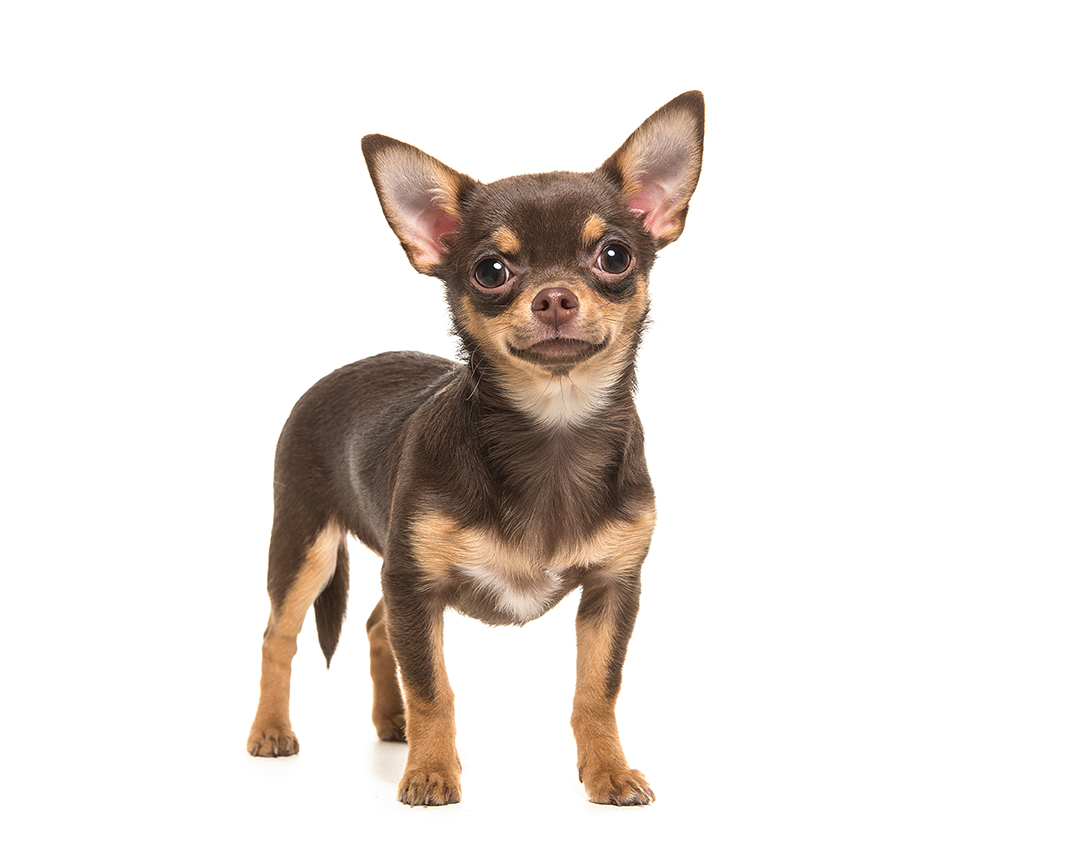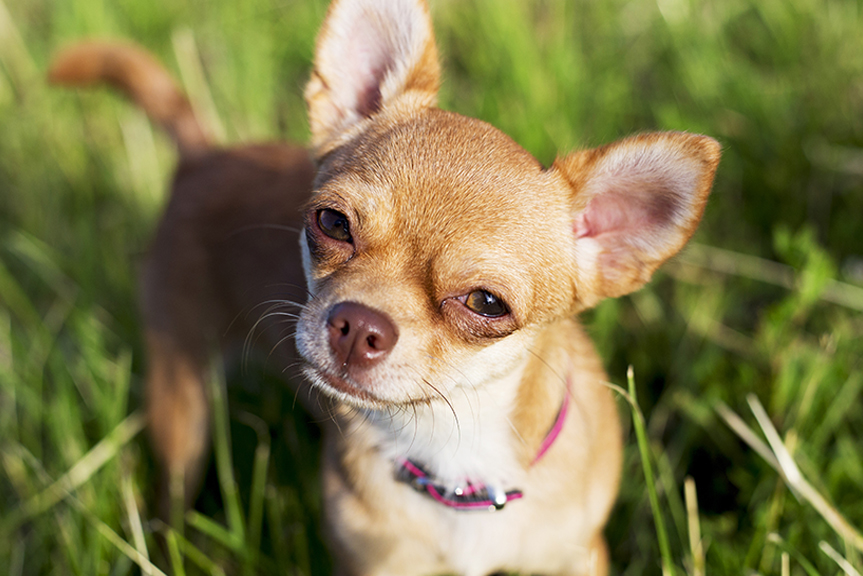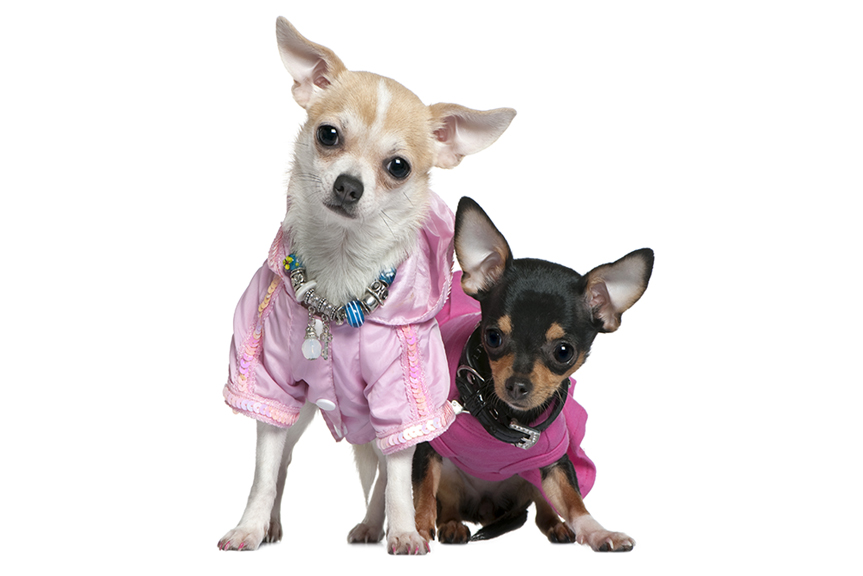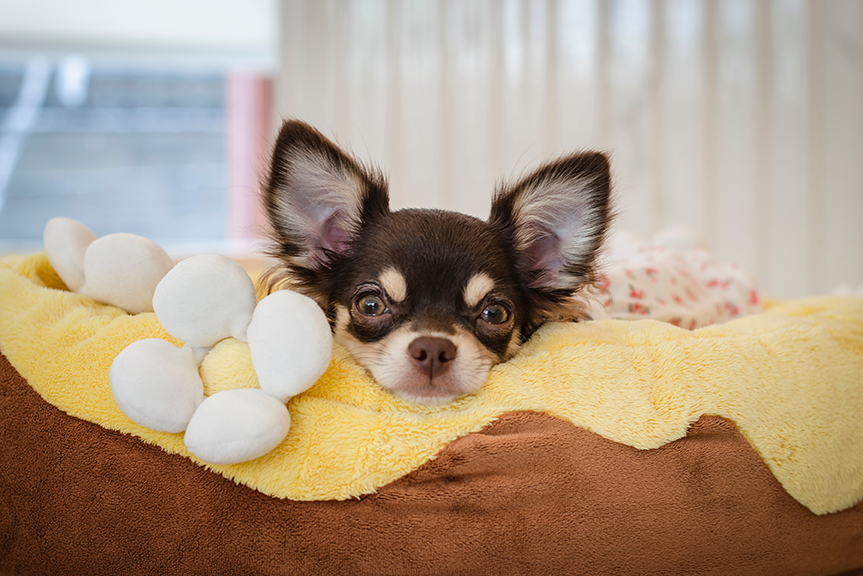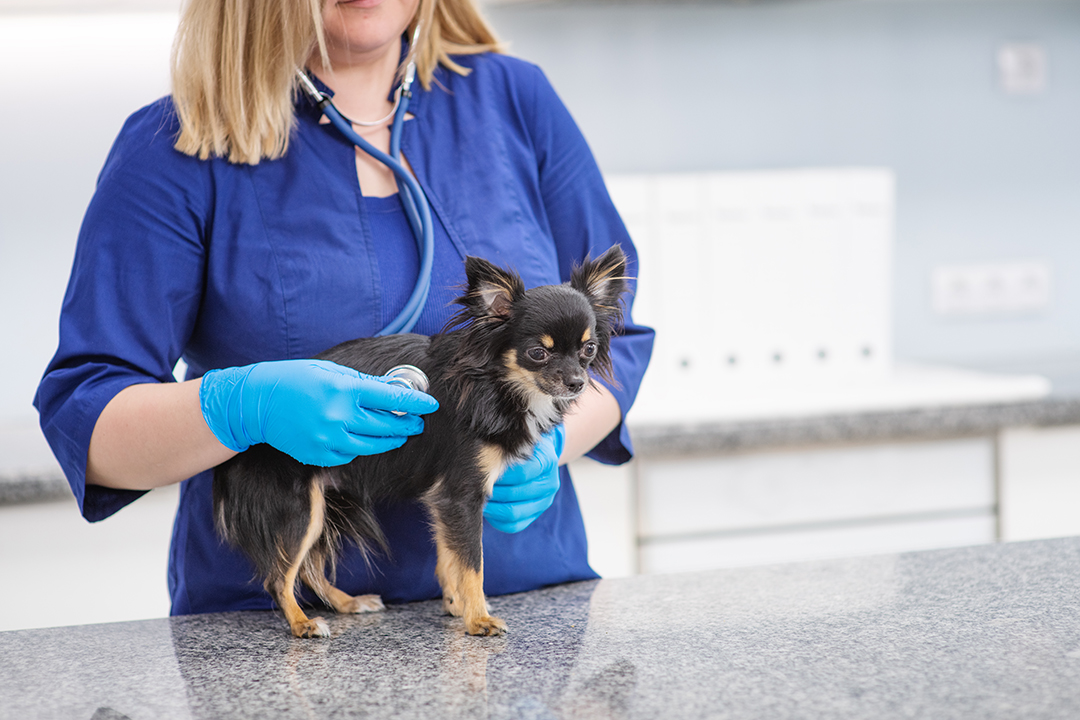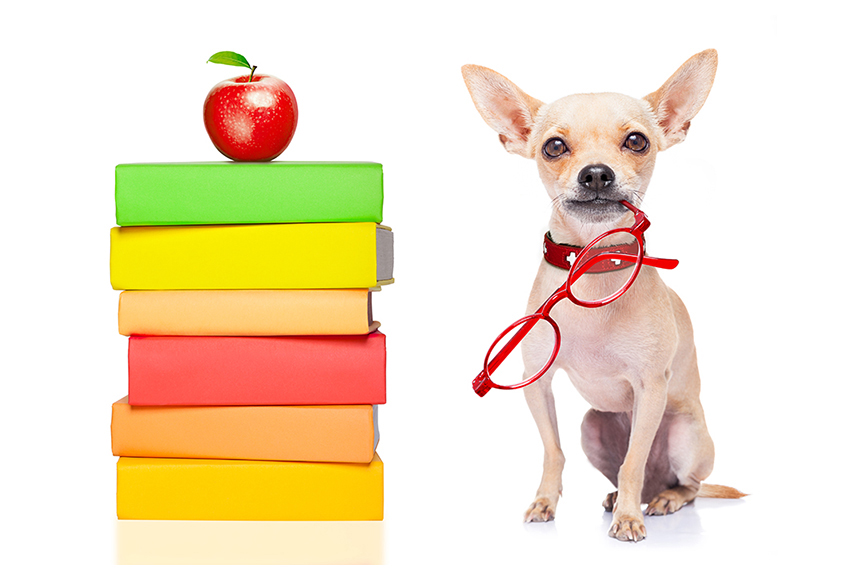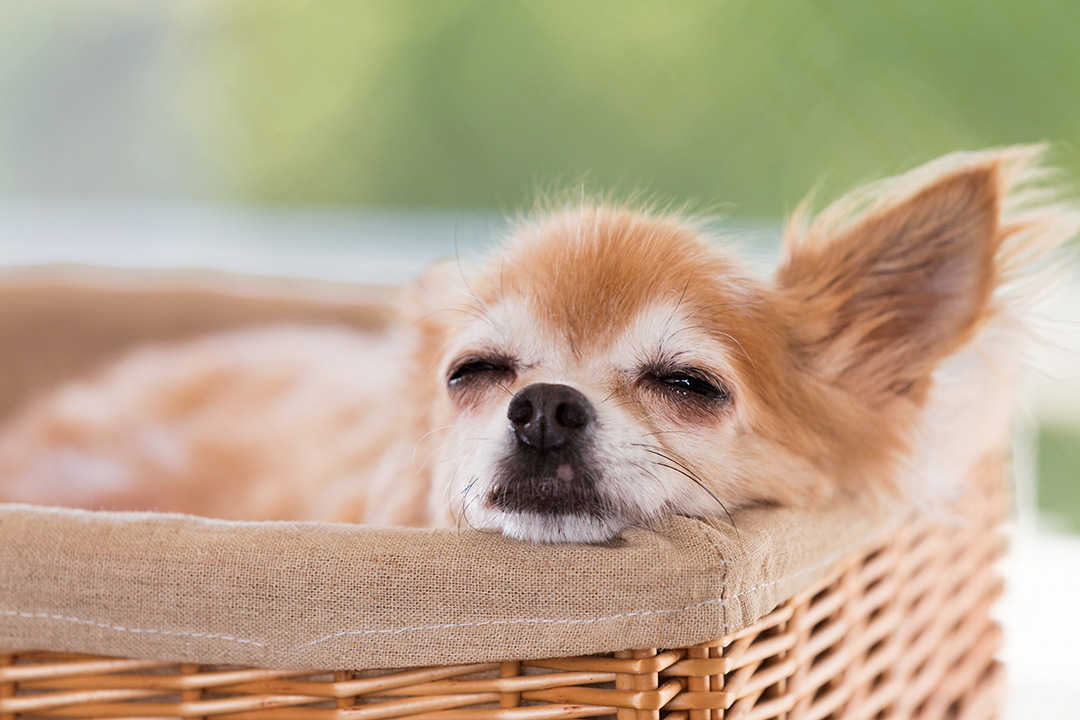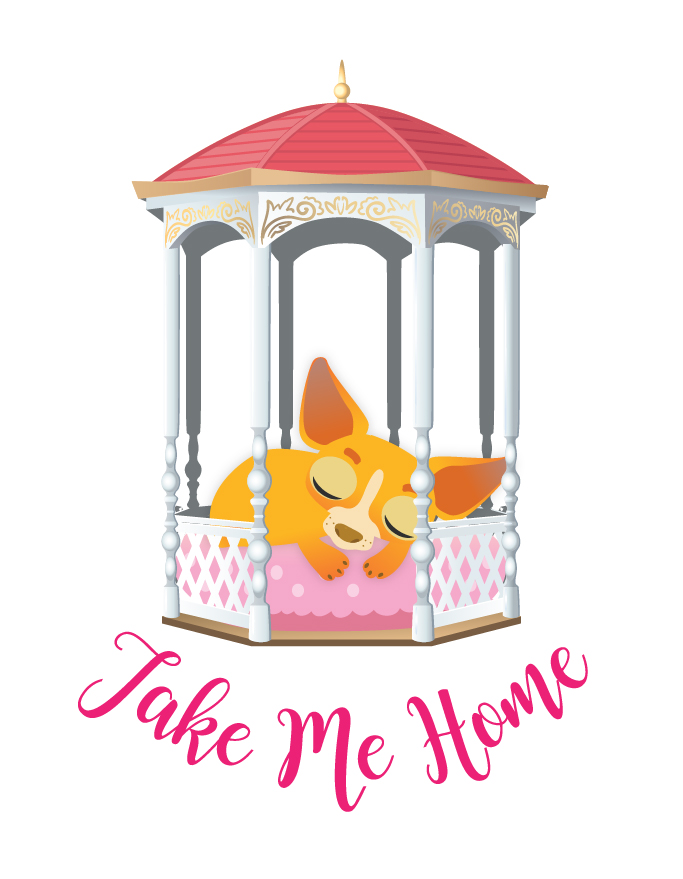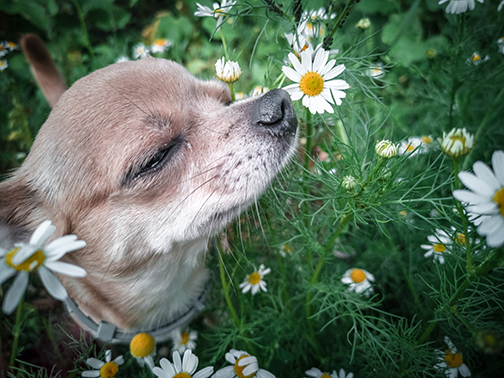Chihuahua Nutrition
Adult Nutritional Needs for Your Chi
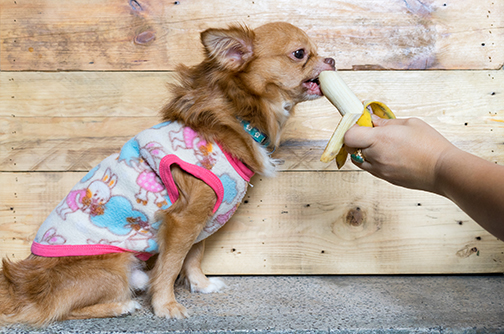
You may have an initial need to just count calories for your Adult Chi to ensure she does not gain weight. It’s much more important to focus on feeding your Chihuahua the best possible food to make every calorie count. Your Chi will need a healthy balance of Proteins, Carbohydrates, Healthy Fats and Vitamins and Minerals to keep their mind and body functioning at optimal levels.
Each amino acid plays a role in Protein. Amino acids are vital building blocks for the entire body and help maintain and repair bones, muscles, cartilage, skin, and blood. The ten essential amino acids found in protein from meat are arginine, histidine, isoleucine, leucine, lysine, methionine, phenylalanine, threonine, tryptophan, and valine. Dogs cannot produce these amino acids on their own. They each play an important role, like providing the carbon chains needed to make the primary energy source, glucose.
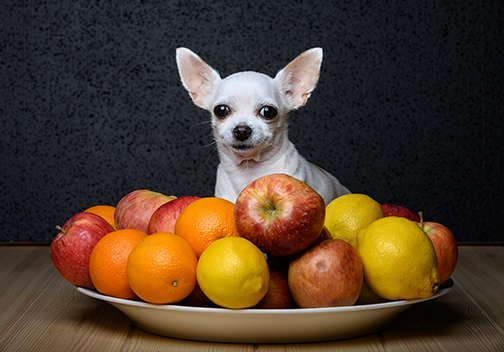
Your Chihuahua will need energy to fuel their daily activities of growth, healthy brain function and exercise. Don’t forget clean water for your Chi. Always make sure there is clean water in your pup's bowl. Each time the water bowl needs filling, ensure that you empty, scrub with soap and refill the water to prevent algae from growing.
When you perfectly balance fats in your Chi’s diet, you support better eye and heart health and help your pup develop improved muscle mass and less fat in the body which leads to improved athletic performance. Healthy fats also provide essential fatty acids for healthy skin and shiny coat.In a nutshell, if you feed your Chihuahua the right fats, they will have fewer health problems and lead a longer healthier life.
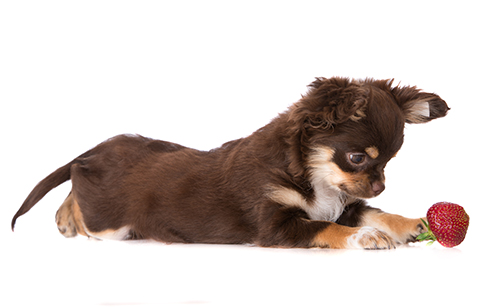
Vitamins and minerals include Vitamin A for vision, organ function and the immune system, Vitamin B1, B2 and B3 all important for energy metabolism, where B1, thiamine is important to nerve function, B2, riboflavin is important for vision and skin health and B3, niacin is important for the nervous system, digestive system and skin health. B6, pyridoxine is important for protein metabolism and helps make red blood cells and B12, cobalamin is important for making new cells, as well as important to nerve function.
Vitamin C is of course an antioxidant that is important for the immune system, it aids in iron absorption and is part of an enzyme needed for protein metabolism. Vitamin E is also an antioxidant. Beta carotene is important for eye health and a strong immune system. It also keeps skin healthy. Biotin is needed for energy metabolism.
Calcium is needed for strong bones and teeth. It also helps blood clot and helps nerves send messages, as well as aids in muscle contraction. Vitamin D helps the body absorb calcium, while Vitamin K activates bone proteins. Phosphorous works with calcium to bones and teeth healthy.
Folic acid helps with protein synthesis. Omega 3, 6 and 9 plays an important role in cell structure and function and keep your Chi’s skin and coat healthy. Magnesium helps the body absorb other vitamins. It is also needed for proper bone growth and is used in the production of protein.
I know this is a lot to take in, but most of these vitamins and minerals will come naturally from feeding your pup a healthy diet. Your vet may recommend an omega supplement.
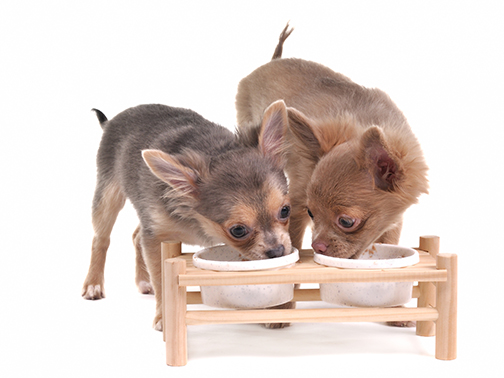
Feeding and Weight
How much you feed your Chi will depend on their activity level, age and any health-related issues. Their activity level is one of the most important factors since they need to burn off the food they are eating. Age is also important factor regarding their metabolism. Depending on the size of your Chi, if you are feeding them a quarter of a cup for smaller Chihuahuas to half a cup for larger Chihuahuas, twice daily and walking them twice a day, you should be fine.
They will also burn calories playing in the house. Puppies in their first year of growth, have a higher metabolism and may need to be fed three times a day. You can give your Chi fruit as treats to lessen calories and a healthy alternative to commercial treats. Blueberries are a favorite.
Health issues that may affect a dog’s metabolism are hypothyroidism and heart conditions. Medications may cause metabolism issues as well usually due to water retention. Some medications can cause an increased appetite resulting in your Chi consuming more food and calories.
A few other things to consider regarding your Chihuahua’s nutritional needs. First, Chihuahuas need to eat more per pound than larger dogs. They need about 47 calories per pound to maintain weight and condition. Second, they have smaller stomachs and will need more calorie rich foods and more smaller meals per day.
This is especially important for smaller Chihuahuas to prevent hypoglycemia. Additionally, they need foods rich in complex carbohydrates and to avoid simple sugars to prevent hypoglycemia. Third, they don’t eat a lot of food, so limit treats as they can throw off a balanced diet.
Finally, Chihuahuas lose more body heat in cold weather as compared to larger dogs and will need ample body fat to make up for the energy lost in maintaining body heat. Keep in mind, that Chihuahuas are prone to dental issues, so they may not be able to eat hard food like kibble. They can also be picky in the food they eat and like variety just as we do.
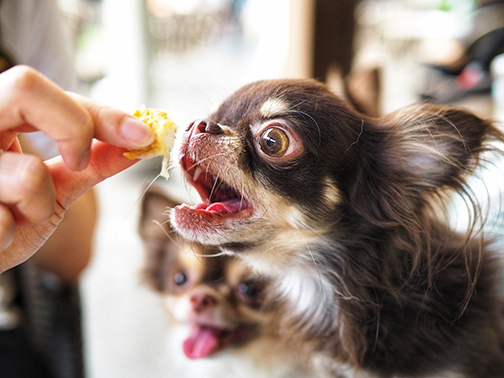
See the chart below for healthy food to feed your Chi. Make sure you familiarize yourself with dangerous toxic foods not to feed your Chihuahua. The foods to limit can be dangerous to your Chi as well.
Also be careful with household items such as medication, insect baits, antifreeze, cleaners, paint and paint thinners, toilet fresheners, air fresheners, nuts, bolts, coins, anything in a sewing basket, chicken and meat bones, sponges, and long item that can be swallowed like string or stockings.
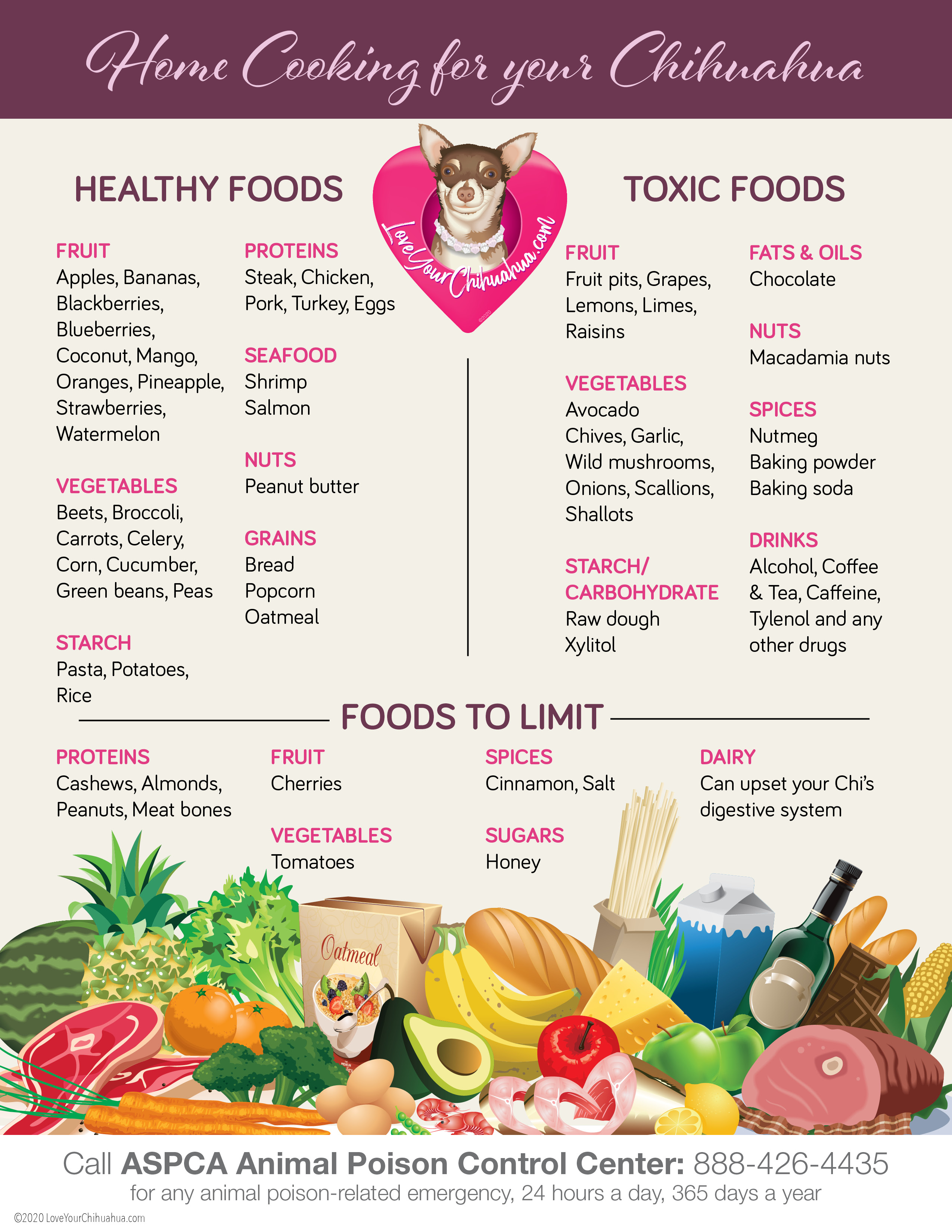
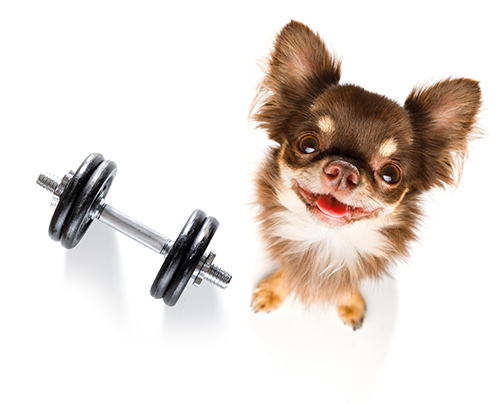
Exercise
Your Chihuahua does not require rigorous exercise. Some consider this a favorable trait. You can take your Chi on long walks, but this is not a requirement. Just make sure your Chi gets two short walks a day. The amount of exercise your Chi needs is determined by the size of your Chihuahua.
A smaller Chi will need less exercise than a larger Chihuahua. Also keep in mind, that although small, Chihuahuas love to play and go for walks with their favorite person.
If you have a fenced yard, your Chi can get exercise there as well, but don’t leave them outside alone with wildlife and other animals that may hurt them. A Chihuahua that gets no exercise will become obese and unhealthy.
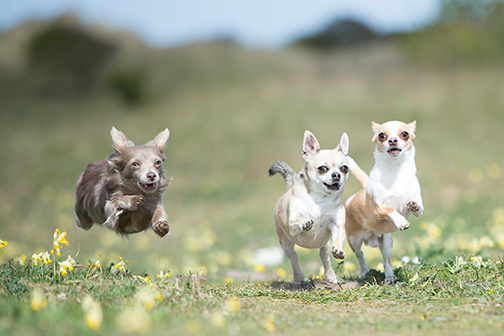
Recent Articles
Chihuahua Dog Care
Quick Links for the main topics you will find on Love Your Chihuahua
